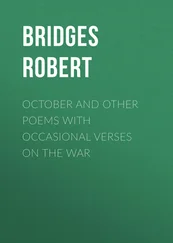Joseph Elwell - Bridge Axioms and Laws
Здесь есть возможность читать онлайн «Joseph Elwell - Bridge Axioms and Laws» — ознакомительный отрывок электронной книги совершенно бесплатно, а после прочтения отрывка купить полную версию. В некоторых случаях можно слушать аудио, скачать через торрент в формате fb2 и присутствует краткое содержание. Жанр: foreign_antique, foreign_prose, на английском языке. Описание произведения, (предисловие) а так же отзывы посетителей доступны на портале библиотеки ЛибКат.
- Название:Bridge Axioms and Laws
- Автор:
- Жанр:
- Год:неизвестен
- ISBN:нет данных
- Рейтинг книги:4 / 5. Голосов: 1
-
Избранное:Добавить в избранное
- Отзывы:
-
Ваша оценка:
- 80
- 1
- 2
- 3
- 4
- 5
Bridge Axioms and Laws: краткое содержание, описание и аннотация
Предлагаем к чтению аннотацию, описание, краткое содержание или предисловие (зависит от того, что написал сам автор книги «Bridge Axioms and Laws»). Если вы не нашли необходимую информацию о книге — напишите в комментариях, мы постараемся отыскать её.
Bridge Axioms and Laws — читать онлайн ознакомительный отрывок
Ниже представлен текст книги, разбитый по страницам. Система сохранения места последней прочитанной страницы, позволяет с удобством читать онлайн бесплатно книгу «Bridge Axioms and Laws», без необходимости каждый раз заново искать на чём Вы остановились. Поставьте закладку, и сможете в любой момент перейти на страницу, на которой закончили чтение.
Интервал:
Закладка:
When the game is seemingly lost, take the one chance of finding in your partner's hand the cards that will save it.

It is surprising how often a desperate expedient will overcome a desperate situation.
To force luck is to attempt to make it – a most idle task.
Human nature tempts mortals to lose more than they can win, sometimes more than they can afford.
Press good fortune while it lasts and do not linger when it refuses to smile.

If you win with invincible cards, your victory is cheap.
Do not ascribe to bad luck the result of bad play.
Whoever is favoured by luck may usually take all manner of chances and succeed.
More rubbers are lost by bad makes than by bad plays.
Often the result of one hand, which proves nothing, will encourage the tendency toward unsound makes.
The question "What will be the probable make if I pass?" is of great assistance in determining the declaration.
It is remarkable how many passed "no-trumpers" go astray; and the number proves the necessity for more cautious passed makes.
A good player can take more chances with the make because of his ability to play the cards properly.

No-trump play is an effort to establish and bring in small cards of a long suit.
Many a hand is ruined by careless and hasty play at the first trick.
Do not play your adversary's game for him, lend him no aid in establishing his suit.
Take all your finesses against the player who holds an established suit.
If, as dealer, you wish to make four tricks in a suit with but three in sight, give the adversaries a chance to discard.
When there are tricks that the adversaries must win, try to make this necessity a benefit to your hand.
Rid yourself of any high card which may interrupt the continuation of your partner's suit.
The dealer's main plan of a trump hand should be to exhaust trumps and bring in a suit.

Be cognisant of what you should accomplish and then decide how best to do it.
Pitfalls in the form of false leads, false cards and clever under-play should be dug for your adversaries at every opportunity.

Too much haste in showing ability to ruff in the weak trump hand frequently brings disaster.

When you are reasonably assured of every trick but one, lead your remaining trump.

As a rule avoid an inclination to ruff in the strong trump hand.

Remember that the partner who doubles usually has trump strength, and do not strew his pathway with obstructions by forcing him.
It is unusually bad play to double when you need only an odd trick to win the game.

The card led by your partner is a message of his holding in that suit.
Many a rubber is lost which the prompt lead of a high card might have saved.
It is too late to force when the adversaries hold the remaining trumps and an established suit.

Ruffing with a commanding trump rarely loses a trick and often gains one.

The temptation to over-trump should frequently be resisted.

Clear your long suit before you part with your card of re-entry.
Cultivate uniformity in your style of play, let there be no remarkable haste or hesitation in making or passing, and look as cheerful as possible.

Hesitation and mannerisms in Bridge should be carefully avoided.
Emphasise no play of your own, and show no pleasure or displeasure at any play.
Superiority of skill is shown by the play of the cards, not by mannerisms.

Continued hesitancy and nervous indecision are serious faults in Bridge.
Make up your mind to do your best with the cards that have been dealt you.
The occupant of the "high-chair" usually has a monopoly for giving advice.

Let your manner be uniformly such that no one can tell from it whether you are winning or losing.
Play Bridge with an eloquent silence; it will command both respect and admiration.

An occasional mistake is preferable to an irritating delay.

Slow play is, more or less, a habit. Its effect amounts to a fault.
When there is an unusual distribution of the cards, remarks are superfluous.
Indecision may tell your adversaries exactly what they are most eager to know.
Deliberation at the beginning of a hand is permissible and should be encouraged.
The player who interrupts the game to discuss the play should be ostracised from the card room.
Make no overt remarks during the play which may tend to give the adversaries information.

It is usually the inexperienced player who offers an astonishing amount of gratuitous and un-sought-for advice.
It is often difficult to refrain from showing pleasure at the accomplishment of a desired purpose, but consider that undue elation is most aggravating to the adversaries.

Post-mortems have their interest and, as a rule, are unmistakably convincing.

Do not venture upon a post-mortem unless you are certain of what the scalpel is going to reveal.

Do not continue to talk of harassing details when another hand is awaiting play.
General rules are formulated as an assistance to intelligent play.
Many brilliant plays are made in contravention to rules.

Certain laws that govern the technicalities are absolute, but rules in general are not the masters of Bridge.

Rules should be considered second to circumstances and to the fall of the cards.
There are hands in Bridge which may be said to play themselves.

Интервал:
Закладка:
Похожие книги на «Bridge Axioms and Laws»
Представляем Вашему вниманию похожие книги на «Bridge Axioms and Laws» списком для выбора. Мы отобрали схожую по названию и смыслу литературу в надежде предоставить читателям больше вариантов отыскать новые, интересные, ещё непрочитанные произведения.
Обсуждение, отзывы о книге «Bridge Axioms and Laws» и просто собственные мнения читателей. Оставьте ваши комментарии, напишите, что Вы думаете о произведении, его смысле или главных героях. Укажите что конкретно понравилось, а что нет, и почему Вы так считаете.






![Brian Thompson - A Monkey Among Crocodiles - The Life, Loves and Lawsuits of Mrs Georgina Weldon – a disastrous Victorian [Text only]](/books/704922/brian-thompson-a-monkey-among-crocodiles-the-life-thumb.webp)





